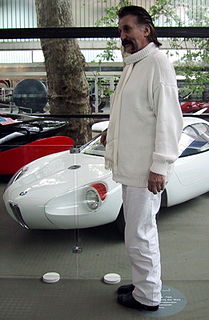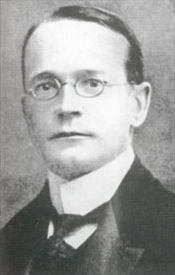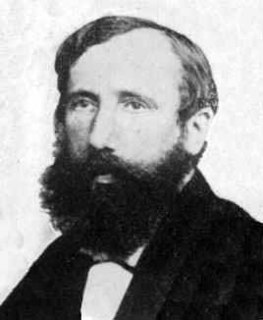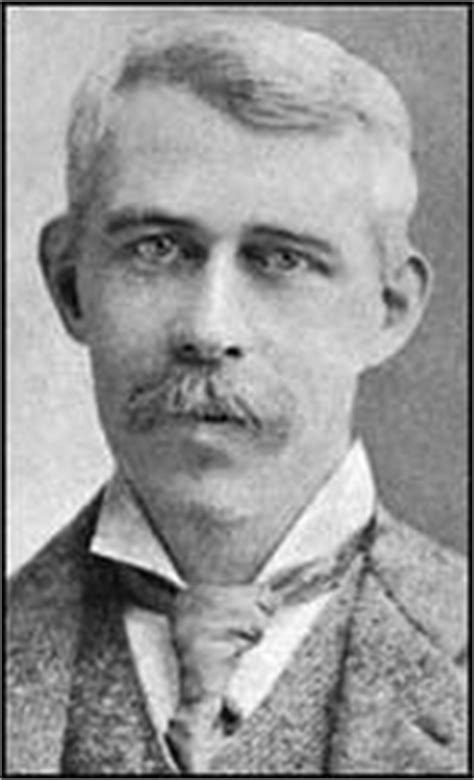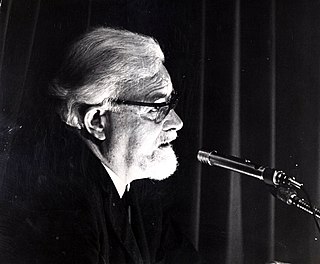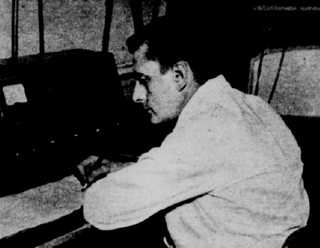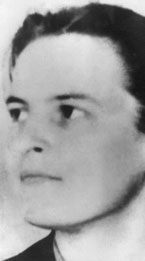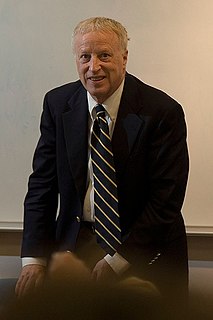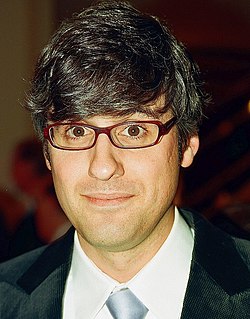Top 907 Philosopher Quotes & Sayings - Page 15
Explore popular Philosopher quotes.
Last updated on April 21, 2025.
It is a wonderful thing to see a first-rate philosopher at prayer. Tough-minded thinking and tenderhearted reverence are friends, not enemies. We have for too long separated the head from the heart, and we are the lesser for it. We love God with the mind and we love God with the heart. In reality, we are descending with the mind into the heart and there standing before God in ceaseless wonder and endless praise. As the mind and the heart work in concert, a kind of loving rationality pervades all we say and do. This brings unity to us and glory to God.
Political dissension is doubtless a less evil than the lethargy of despotism: but still it is a great evil, and it would be as worthy the efforts of the patriot as of the philosopher, to exclude its influence if possible, from social life. The good are rare enough at best. There is no reason to subdivide them by artificial lines. But whether we shall ever be able so far to perfect the principles of society as that political opinions shall, in its intercourse, be as inoffensive as those of philosophy, mechanics, or any other, may well be doubted.
A statue lies hid in a block of marble, and the art of the statuary only clears away the superfluous matter and removes the rubbish. The figure is in the stone; the sculptor only finds it. What sculpture is to a block of marble, education is to a human soul. The philosopher, the saint, or the hero,--the wise, the good, or the great man,--very often lies hid and concealed in a plebeian, which a proper education might have disinterred, and have brought to light.
The philosopher Ludwig Wittgenstein once remarked that if you ask a man how much is two plus two and he tells you five, that is a mistake. But if you ask a man how much is two plus two and he tells you ninety-seven, that is no longer a mistake. The man you are talking to is operating with a wholly different logic from your own.
I have observed that male writers tend to get asked what they think and women what they feel," she says. "In my experience, and that of a lot of other women writers, all of the questions coming at them from interviewers tend to be about how lucky they are to be where they are – about luck and identity and how the idea struck them. The interviews much more seldom engage with the woman as a serious thinker, a philosopher, as a person with preoccupations that are going to sustain them for their lifetime.
The world is super-stupid. You have by far the best designers in America! And you do the most stupid cars in the world! They put billions into their stupid designs for General Motors, Chrysler, Buick, or who knows what. The designers in America must be frustrated. I am not frustrated, because I am not a designer - I am a philosopher, and all philosophers have said for ages that the world around them is stupid.
The bourgeois thinkers of the eighteenth century thus turned Aristotle's formula on its head: satisfactions which the Greek philosopher had identified with leisure were now transposed to the sphere of work, while tasks lacking in any financial reward were drained of all significance and left to the haphazard attentions of decadent dilettantes. It now seemed as impossible that one could be happy and unproductive as it had once seemed unlikely that one could work and be human.
An excellent plumber is infinitely more admirable than an incompetent philosopher. The society which scorns excellence in plumbing because plumbing is a humble activity and tolerates shoddiness in philosophy because it is an exalted activity will have neither good plumbing nor good philosophy. Neither its pipes nor its theories will hold water.
As a philosopher, if I were speaking to a purely philosophic audience I should say that I ought to describe myself as an Agnostic, because I do not think that there is a conclusive argument by which one can prove that there is not a God. On the other hand, if I am to convey the right impression to the ordinary man in the street I think that I ought to say that I am an Atheist, because, when I say that I cannot prove that there is not a God, I ought to add equally that I cannot prove that there are not the Homeric gods.
I'm an outlaw, not a philosopher, but I know this much: there's meaning in everything, all things are connected, and a good champagne is a drink.' Bernard began to sing again. Timidly, Leigh-Cheri joined in. Between verses, they opened another bottle. The popping of its cork echoed throughout the great stone chamber. Of the three billion people on earth, only Bernard and Leigh-Cheri heard the popping of the cork and its echoes. Only Bernard and Leigh-Cheri passed out under the tablecloth.
The true wisdom of the philosopher ought to insist in enjoying everything. Yet we apply ourselves to dissecting and destroying everything that is good in itself, that has virtue, albeit the virtue there is in mere illusions. Nature gives us this life like a toy to a weak child. We want to see how it all works; we break everything. There remains in our hands, and before our eyes, stupid and opened too late, the sterile wreckage, fragments that will not again make a whole. The good is so simple.
Each one of us pray, day and night, for the downtrodden millions in India, who are held fast by poverty, priest craft, and tyranny - pray day and night for them. I am no meta physician, no philosopher, nay, no saint. But I am poor, I love the poor.... Let these people be your God - think of them, work for them, pray for them incessantly - the Lord will show you the way.
It was Sci-Fi and fantasy that got me reading, and Sci-Fi writers in particular have pack rat minds. They introduce all sorts of interesting themes and ideas into their books, and so for me it was a short leap to go from the fantasy and Sci-Fi genres to folklore, mythology, ancient history and philosophy. I did not read philosophy because I set out to become a philosopher; I read it because it looked interesting.
The late British-born philosopher Alan Watts, in one of his wonderful lectures on eastern philosophy, used this analogy: "If I draw a circle, most people, when asked what I have drawn, will say I have drawn a circle or a disc, or a ball. Very few people will say I've drawn a hole in the wall, because most people think of the inside first, rather than thinking of the outside. But actually these two sides go together--you cannot have what is 'in here' unless you have what is out there.' " In other words, where we are is vital to who we are.
Evolution throws a wonderful light on all the struggles, eccentricities, tortuous developments of the human conscience in the past. It is the only theory of morals that does. And evolution throws just as much light on the ethical and social struggle today; and it is the only theory that does. What a strange age ours is from the religious point of view! What a hopeless age from the philosopher's point of view! Yet it is a very good age, the best that ever was. No evolutionist is a pessimist.
We certainly have to have a view about knowledge in order to decide whether some version of foreknowledge is necessary for inquiry or whether some philosopher or other thinks it is. Roughly, the more demanding our conception of knowledge is, the less plausible foreknowledge is; the weaker our conception of knowledge is, the more plausible foreknowledge is.
Pity the nation whose statesman is a fox, whose philosopher is a juggler, and whose art is the art of patching and mimicking. Pity the nation that welcomes its new ruler with trumpetings, and farewells him with hootings, only to welcome another ruler with trumpetings again. Pity the nation whose sages are dumb with years and whose strong men are yet in the cradle. Pity the nation divided into fragments, each fragment deeming itself a nation.
Abraham Lincoln did have intellectual instincts, a tremendous curiosity on a broad range of subjects, and a near-photographic memory for what he read. He was, at the end of the day, a politician: politics were his heaven, said William Herndon. But Lincoln did take comfort in ideas and books, more so than almost any other president, and he went to books and ideas in moments of perplexity to sort things out. Philosopher, no, but thoughtful and "surprisingly well-read" for his day.
When we seek a textbook case for the proper operation of science, the correction of certain error offers far more promise than the establishment of probable truth. Confirmed hunches, of course, are more upbeat than discredited hypotheses. Since the worst traditions of "popular" writing falsely equate instruction with sweetness and light, our promotional literature abounds with insipid tales in the heroic mode, although tough stories of disappointment and loss give deeper insight into a methodology that the celebrated philosopher Karl Popper once labeled as "conjecture and refutation.
To paraphrase the philosopher Nietzsche, he who has a strong enough why can bear almost any how. I've found that 20 percent of any change is knowing how; but 80 percent is knowing why. If we gather a set of strong enough reasons to change, we can change in a minute something we've failed to change for years.
Every man feels that perception gives him an invincible belief of the existence of that which he perceives; and that this belief is not the effect of reasoning, but the immediate consequence of perception. When philosophers have wearied themselves and their readers with their speculations upon this subject, they can neither strengthen this belief, nor weaken it; nor can they shew how it is produced. It puts the philosopher and the peasant upon a level; and neither of them can give any other reason for believing his senses, than that he finds it impossible for him to do otherwise.
The student who would build his knowledge on solid foundations, and proceed by just degrees to the pinnacles of truth, is directed by the great philosopher of France to begin by doubting of his own existence. In like manner, whoever would complete any arduous and intricate enterprise, should, as soon as his imagination can cool after the first blaze of hope, place before his own eyes every possible embarrassment that may retard or defeat him. He should first question the probability of success, and then endeavour to remove the objections that he has raised.
I am Plato's Republic. Mr. Simmons is Marcus. I want you to meet Jonathan Swift, the author of that evil political book, Gulliver's Travels! And this other fellow is Charles Darwin, and-this one is Schopenhauer, and this one is Einstein, and this one here at my elbow is Mr. Albert Schweitzer, a very kind philosopher indeed. Here we all are, Montag. Aristophanes and Mahatma Gandhi and Gautama Buddha and Confucius and Thomas Love Peacock and Thomas Jefferson and Mr. Lincoln, if you please. We are also Matthew, Mark, Luke, and John.
Cavendish was a great Man with extraordinary singularities-His voice was squeaking his manner nervous He was afraid of strangers & seemed when embarrassed to articulate with difficulty-He wore the costume of our grandfathers. Was enormously rich but made no use of his wealth... He Cavendish lived latterly the life of a solitary, came to the Club dinner & to the Royal Society: but received nobody at his home. He was acute sagacious & profound & I think the most accomplished British Philosopher of his time.
I think nobody alive today is a more powerful agent of conversion than someone like Mother Teresa. You can refute arguments but not her life. When she came to the National Prayer Breakfast and lectured President Clinton about abortion, he had nothing to say to her. He can't argue with a saint. It's too bad there isn't an easier way, because becoming a saint is not the easiest thing in the world. It's much easier to become an apologist or a philosopher or a theologian.
Across a chasm of eighteen hundred years, Jesus Christ makes a demand which is beyond all others difficult to satisfy; He asks for that which a philosopher may often seek in vain at the hands of his friends, or a father of his children, or a bride of her spouse, or a man of his brother. He asks for the human heart; He will have it entirely to Himself. He demands it unconditionally; and forthwith His demand is granted. Wonderful!
It has been said by a distinguished philosopher that England is "usually the last to enter into the general movement of the European mind." The author of the remark probably meant to assert that a man or a system may have become famous on the continent, while we are almost ignorant of the name of the man and the claims of his system. Perhaps, however, a wider range might be given to the assertion. An exploded theory or a disadvantageous practice, like a rebel or a patriot in distress, seeks refuge on our shores to spend its last days in comfort if not in splendour.
The philosopher Descartes believed he had found the most fundamental truth when he made his famous statement: "I think, therefore I am." He had, in fact, given expression to the most basic error: to equate thinking with Being and identity with thinking. The compulsive thinker, which means almost everyone, lives in a state of apparent separateness, in an insanely complex world of continuous problems and conflict, a world that reflects the ever-increasing fragmentation of the mind.
The true lover of learning then must his earliest youth, as far as in him lies, desire all truth.... He whose desires are drawn toward knowledge in every form will be absorbed in the pleasures of the soul, and will hardly feel bodily pleasures I mean, if he be a true philosopher and not a sham one ... Then how can he who has the magnificence of mind and is the spectator of all times and all existence, think much of human life He cannot. Or can such a one account death fearful No indeed.
A lot of our fellow liberals ... seem to me rather to doom themselves to futility in public affairs because the won't recognize that there's a zone of natural affection midway between the inner, or family one, and the outer, or all-humanity one. I suppose they are somehow short of a zone themselves and they seem to get vexed... The common man knows better, just as he'd know better if some philosopher told him he ought not to make invidious distinctions by feeding his own children in preference to others. But of course he can't explain; he just ... goes on feeding the kids.
The task of the political philosopher can only be to influence public opinion, not to organize people for action. He will do so effectively only if he is not concerned with what is now politically possible but consistently defends the "general principles which are always the same." In this sense I doubt whether there can be such a thing as a conservative political philosophy. Conservatism may often be a useful practical maxim, but it does not give us any guiding principles which can influence long-range developments.
It was precisely this notion of infinite series which in the sixth century BC led the Greek philosopher Zeno to conclude that since an arrow shot towards a target first had to cover half the distance, and then half the remainder, and then half the remainder after that, and so on ad infinitum, the result was, as I will now demonstrate, that though an arrow is always approaching its target, it never quite gets there, and Saint Sebastian died of fright.
It is clear that everybody interested in science must be interested in world 3 objects. A physical scientist, to start with, may be interested mainly in world 1 objects--say crystals and X-rays. But very soon he must realize how much depends on our interpretation of the facts, that is, on our theories, and so on world 3 objects. Similarly, a historian of science, or a philosopher interested in science must be largely a student of world 3 objects.
How can we satisfy ourselves without going on in infinitum? And, after all, what satisfaction is there in that infinite progression? Let us remember the story of the Indian philosopher and his elephant. It was never more applicable than to the present subject. If the material world rests upon a similar ideal world, this ideal world must rest upon some other; and so on, without end. It were better, therefore, never to look beyond the present material world.
Life is getting through the moment. The philosopher William James says to cultivate the cheerful attitude. Now nobody had more trouble than he did -- except me. I had more trouble in my life than anybody. But your first big trouble can be a bonanza if you live through it. Get through the first trouble, you'll probably make it through the next one.
Nobody can be saved from anything, unless they save themselves. It is hopeless doing things for people - it is often very dangerous to do things at all - and the only thing worth doing for the race is to increase its stock of ideas. Then, if you make available a larger stock, people are at liberty to help themselves from out of it. By this process the means of improvement is offered, to be accepted or rejected freely, and there is a faint hope of progress in the course of millennia. Such is the business of the philosopher, to open new ideas. It is not his business to impose them on people.
What great philosophers do for us is not to hand out such an all-purpose system. It is to light up and clarify some special aspect of life, to supply conceptual tools which will do a certain necessary kind of work. Wide though that area of work may be, it is never the whole, and all ideas lose their proper power when they are used out of their appropriate context. That is why one great philosopher does not necessarily displace another, why there is room for all of them and a great many more whom we do not have yet.
Good Lord, I don't know what 'rights' a man has! And I don't know the solution of boredom. If I did, I'd be the one philosopher that had the cure for living. But I do know that about ten times as many people find their lives dull, and unnecessarily dull, as ever admit it; and I do believe that if we busted out and admitted it sometimes, instead of being nice and patient and loyal for sixty years, and then nice and patient and dead for the rest of eternity, why, maybe, possibly, we might make life more fun.
If you set your heart upon philosophy, you must straightway prepare yourself to be laughed at and mocked by many who will say Behold a philosopher arisen among us! or How came you by that brow of scorn? But do you cherish no scorn, but hold to those things which seem to you the best, as one set by God in that place. Remember too, that if you abide in those ways, those who first mocked you, the same shall afterwards reverence you; but if you yield to them, you will be laughed at twice as much as before.
I've been labelled many times - a criminal, an anarchist, a rebel, sometimes human garbage, but never a philosopher, which is a pity because that's what I am. I chose a life apart from the common flow, not only because the common flow makes me sick but because I question the logic of the flow, and not only that - I don't know if the flow exists! Why should I chain myself to the wheel when the wheel itself might be a construct, an invention, a common dream to enslave us?
Man tries to make for himself in the fashion that suits him best a simplified and intelligible picture of the world; he then tries to some extent to substitute this cosmos of his for the world of experience, and thus to overcome it. This is what the painter, the poet, the speculative philosopher, and the natural scientists do, each in his own fashion. Each makes this cosmos and its construction the pivot of his emotional life, in order to find in this way peace and security which he can not find in the narrow whirlpool of personal experience.
Golden Verses So-called because they are "good as gold." They are by some attributed to Epicarmos, and by others to Empedocles, but always go under the name of Pythagoras, and seem quite in accordance with the excellent precepts of that philosopher. They are as follows: Ne'er suffer sleep thine eyes to close Before thy mind hath run O'er every act, and thought, and word, From dawn to set of sun; For wrong take shame, but grateful feel If just thy course hath been; Such effort day by day renewed Will ward thy soul from sin. E. C. B.
The real searcher after truth will not receive the old because it is old, or reject the new because it is new. He will not believe men because they are dead, or contradict them because they are alive. With him an utterance is worth the truth, the reason it contains, without the slightest regard to the author. He may have been a king or serf - a philosopher or servant, - but the utterance neither gains nor loses in truth or reason. Its value is absolutely independent of the fame or station of the man who gave it to the world.
Even those who have desired to work out a completely positive philosophy have been philosophers only to the extent that, at the same time, they have refused the right to install themselves in absolute knowledge. They taught not this knowledge, but its becoming in us, not the absolute but, at most, our absolute relation to it, as Kierkegaard said. What makes a philosopher is the movement which leads back without ceasing from knowledge to ignorance, from ignorance to knowledge, and a kind of rest in this movement.
To mix science up with philosophy is only to produce a philosophy that has lost all its ideal value and a science that has lost all its practical value. It is for my private physician to tell me whether this or that food will kill me. It is for my private philosopher to tell me whether I ought to be killed.
The ancient Greek philosopher Epictetus taught his students that what happens to them is not as important as what they believe happens to them. In this engaging and provocative book, Eldon Taylor provides his readers with specific ways in which their beliefs can lead to success or failure in their life undertakings. Each chapter provides nuggets of wisdom as well as road maps for guiding them toward greater self-understanding, balance, responsibility, and compassion.
The Chinese philosopher Chuang-Tzu stated that true empathy requires listening with the whole being: The hearing that is only in the ears is one thing. The hearing of the understanding is another. But the hearing of the spirit is not limited to any one faculty, to the ear, or to the mind. Hence it demands the emptiness of all the faculties. And when the faculties are empty, then the whole being listens. There is then a direct grasp of what is right there before you that can never be heard with the ear or understood with the mind.
By the respectable terms of the modern literary profession, novelists do not preach. And, in fact, there has probably not been a less respectable novelist among the irrefutably enduring writers of our time than Ayn Rand: philosopher queen of the best-seller lists in the forties and fifties, cult phenomenon and nationally declared threat to public morality in the sixties, guru to the Libertarians and to White House economic policy in the seventies, and a continuing exemplar or Wilde's tragic observation that more than half of modern culture depends on what one shouldn't read.
Some people spend their whole lives looking for themselves, yet our self is the one thing we surely cannot lose (how like a cheap philosopher I am become, staying in this benighted place). From the moment we are conceived it is the pattern in our blood and our bones are printed through with it like sticks of seaside rock. Nora, on the other hand, says that she’s surprised anyone knows who they are, considering that every cell and molecule in our bodies has been replaced many times over since we were born.
With intent to neither idolize nor demonize the man [Barack Obama], it seems fair and evident enough to say that the current president of America is not a leader whose way is that of violent public outbursts. It appears to be more that of a warrior-philosopher who practices the art of political persuasion by authoring acclaimed books, delivering well-crafted speeches, assembling unified coalitions, passing historic legislation, signing well-aimed executive orders, and cultivating a poised but accessible demeanor.
Giving importance to what we think because we thought it, taking our own selves not only (to quote the Greek philosopher) as the measure of all things but as their norm or standard, we create in ourselves, if not an interpretation, at least a criticism of the universe, which we don't even know and therefore cannot criticize. The giddiest, most weak-minded of us then promote that criticism to an interpretation that's superimposed, like a hallucination; induced rather than deduced. It's a hallucination in the strict sense, being an illusion based on something only dimly seen.
The denial of any distinction between foreseen and intended consequences, as far as responsibility is concerned, was not made by Sidgwick in developing any one 'method of ethics'; he made this important move on behalf of everybody and just on its own account; and I think it plausible to suggest that this move on the part of Sidgwick explains the difference between old-fashioned Utilitarianism and the consequentialism, as I name it, which marks him and every English academic moral philosopher since him.
Some time ago a little-known Scottish philosopher wrote a book on what makes nations succeed and what makes them fail. The Wealth of Nations is still being read today. With the same perspicacity and with the same broad historical perspective, Daron Acemoglu and James Robinson have retackled this same question for our own times. Two centuries from now our great-great- . . . -great grandchildren will be, similarly, reading Why Nations Fail.
As the great philosopher George Santayana would have said, 'those who cannot remember the past . . . should simply read Jan Van Meter's Tippecanoe and Tyler Too.' Van Meter's greatest hits collection of slogans is the catchiest ever retelling of American history. It's like the greatest minds of Madison Avenue sat down to write a history book. They don't make sound bites like they used to!
Here we are at the very core of the thesis we wish to defend in the present essay: reverie is under the sign of the anima. When the reverie is truly profound, the being who comes to dream within us is our anima. For a philosopher who takes his inspiration from phenomenology, a reverie on reverie is very exactly a phenomenology of the anima, and it is by coordinating reveries on reverie that he hopes to constitute a "Poetics of reverie". In other words, the poetics of reverie is a poetics of the anima.
The great Sufi poet and philosopher Rumi once advised his students to write down the three things they most wanted in life. If any item on the list clashes with any other item, Rumi warned, you are destined for unhappiness. Better to live a life of single-pointed focus, he taught. But what about the benefits of living harmoniously among extremes? What if you could somehow create an expansive enough life that you could synchronize seemingly incongruous opposites into a worldview that excludes nothing?
It is interesting that liberals don't mind a strong faith at all. When it's their guy with a strong faith - whether it's Jimmy Carter or Woodrow Wilson or Harry Truman - that's just great. FDR inscribing Bibles and sending them to the troops. God bless him! But when a Republican president cites Jesus Christ as his favorite philosopher, as George W. Bush did on a famous occasion, then, well, the liberals cry out that [Tomás de] Torquemada is on the loose and warn gravely of the coming Inquisition.
Five hundred years before Christ was born, the Greek philosopher Heraclitus told his students that "everything changes except the law of change". He said: "You cannot step in the same river twice." The river changes every second; and so does the man who stepped in it. Life is a ceaseless change. The only certainty is today. Why mar the beauty of living today by trying to solve the problems of a future that is shrouded in ceaseless change and uncertainty-a future that no one can possibly foretell?





